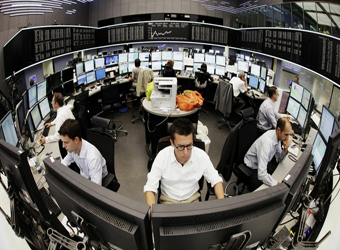European stocks fell on Friday after North Korea sent another missile over Japan into the Pacific Ocean. However, they registered their best week since July.
The Stoxx 600 index, which tracks a broad swath of European equities, fell percent 0.36 percent to close at 380.41.Banks were the worst performing group, which declined 0.8 percent as investors discarded riskier assets.
For the week, the index rose 1.3 percent, it’s best weekly gains since the week of July 14.
Travel and leisure stocks were also among the worst performers following some downgrades in the sector. Carnival fell 3.6 percent after Credit Suisse cut its price target. The sector could also be slightly impacted by another knife attack in Paris in the early hours of Friday.
A man has been arrested after attacking a patrolling soldier but nobody has been hurt, Reuters reported. There was also an explosion at a Tube train in London during Friday morning’s rush hour.
There was also an explosion at a Tube train in London during Friday morning’s rush hour.
The incident is being investigated as a terrorist attack, authorities said. 18 people were taken to hospital with flash burns.
Looking at individual stocks, subprime lender Provident extended losses from the previous session, after RBC downgraded the insurer to underperform. The stock fell 3.3 percent.
Also in the corporate world, JD Wetherspoon said Friday it is on track to achieve its current target for the year after sales were helped by a “very strong” summer holiday season. Its shares were up by 11 percent.
Postnl was near the top of the European benchmark, gaining about 2.9 percent after a rating upgrade from Goldman Sachs.
Meanwhile, Nestle bought a majority stake of Blue Bottle Coffee aiming to spread its coffee across the U.S. market.
Pyongyang’s most recent nuclear test missile landed in the Pacific, about 2000 Km from Japan. Prime Minister Shinzo Abe has called on the United Nations to act.
Meanwhile, the sterling hit a 14-month high against the dollar on Friday, as traders bet on an interest rate rise from the Bank of England in the near-term.
“Over the medium term, we believe it is too early to expect a substantial recovery at this point. That said, we would turn more long-term positive on the GBP if Brexit negotiations showed some real progress in coming months,” Richard Falkenhall, senior FX strategist at SEB, told CNBC.
In terms of data, wages in the euro zone grew at their fastest pace in two years, the Eurostat said. Wages rose two percent year-on-year.
Source: CNBC


